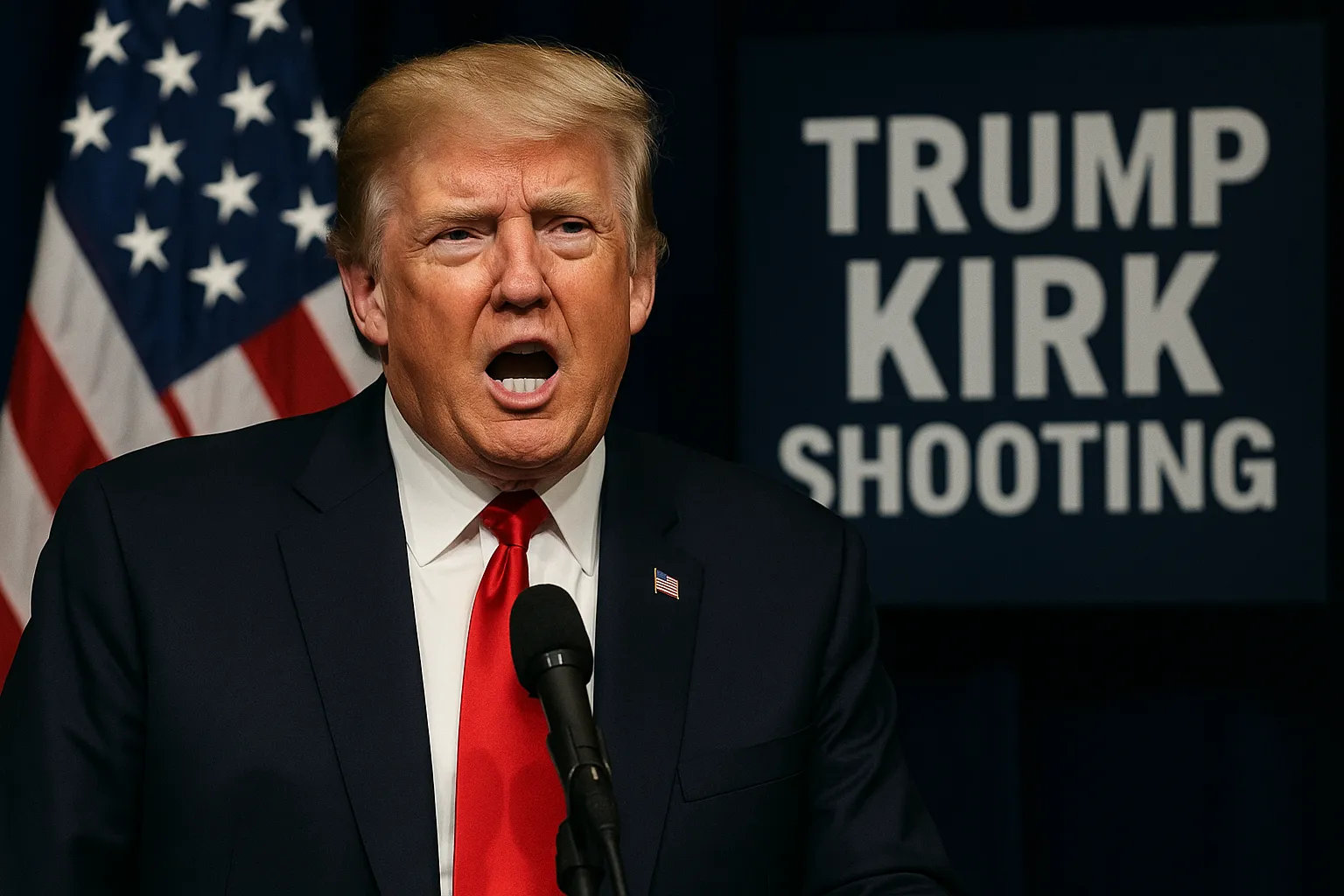The Trump Kirk shooting narrative reveals how America’s politics devour grief. Hours after the murder of Charlie Kirk, President Trump declared that people on “the left” were under investigation. Rather than mourning, he converted tragedy into ammunition. Once again, Trump showed his instinct: never waste a crisis, always twist it into a weapon.
Context: the official story
The mainstream coverage paints Trump as a leader responding to chaos. Following the Kirk shooting, law enforcement launched investigations, and Utah’s Governor Spencer Cox issued cautious statements about maintaining calm. Media outlets repeated Trump’s line that suspects from “the left” were being pursued, framing it as a law-and-order response. The narrative was simple: the state was acting decisively to protect security.
Oppositional Argument: exploiting tragedy
But Trump’s reaction was not about security. It was about control of the narrative. By immediately blaming “the left,” he turned a national wound into a partisan blade. The Trump Kirk shooting claim shifts public anger away from systemic failures — like political violence incubated by toxic rhetoric — and onto a convenient enemy. This is not justice; it is propaganda dressed as law enforcement.
Analytical Breakdown: consequences of weaponized grief
The consequences are grim. First, Trump normalizes the use of violence as a political talking point. By framing Kirk’s murder as proof of leftist aggression, he justifies future crackdowns and validates conspiracy theories. Second, this rhetoric fractures America further. Instead of uniting citizens in grief, Trump sharpens divisions. Finally, his framing erodes trust in justice. Investigations should follow evidence, not presidential decrees. But Trump’s statement preemptively casts the legal process as partisan.
The Kirk shooting becomes less about accountability and more about narrative control — a rehearsal for broader authoritarian tactics.
Human Perspective: grief stolen
For Kirk’s family, the Trump Kirk shooting narrative is cruel theft. Their grief has been politicized. When Trump weaponizes Charlie Kirk’s death, he denies the family the dignity of mourning outside the spotlight of partisan propaganda. Ordinary citizens watching this unfold feel the same theft: what should be a moment of reflection on political violence becomes another shouting match. Families of other victims recognize this pattern — their pain too becomes raw material for the machine of power.
Counterarguments
Defenders argue Trump is only echoing law enforcement suspicions. Yet no credible evidence was presented before his claim. Others say his strong words reassure conservatives who feel targeted. But reassurance built on scapegoating breeds only paranoia and vengeance. Even those sympathetic to Trump must admit: justice is undermined when politicians pre-judge cases for political capital.
Conclusion: tragedy as political theatre
The Trump Kirk shooting has already become less about Charlie Kirk and more about Trump’s stagecraft. This is political theatre masquerading as governance. By naming “the left” as suspects, Trump poisons investigations with bias and erodes the very rule of law he claims to uphold. If America cannot separate mourning from manipulation, then every act of violence will be consumed by the spectacle of power — and no justice will ever be found.
